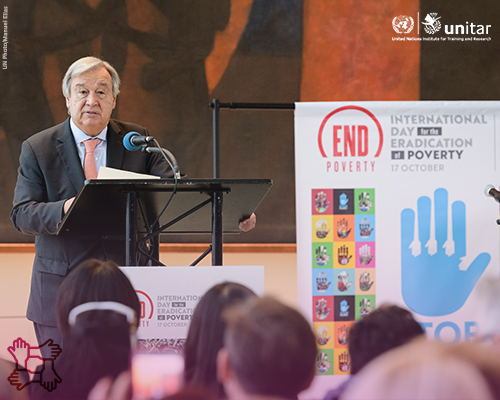
Public and Cultural Diplomacy in a Multipolar World
This on-line course aims to provide participants with an idea of the strategic significance of public and cultural diplomacy in the past and future. The crucial project steps of campaigns, media relations and other public and cultural diplomacy tools are analysed, discussed and summarised in a very practice oriented manner. Legal and human resource questions complement the material in order to be applicable in many environments.
Current practice in the field of public and cultural diplomacy will be analysed, along with the varied institutional arrangements in key countries. Finally, there will be an examination of public and cultural diplomacy as conducted in multilateral fora.
Public diplomacy, and its sister concept, soft power, dominate much of the current academic debate about 21st century diplomacy. A major challenge for governments is how to develop effective public diplomacy, and optimize the use of their soft power, in a rapidly changing global environment. This course aims to help participants understand what public diplomacy and cultural diplomacy are, how its practice has evolved over time and how the current challenges are being addressed. It will also examine a range of tools & techniques available to public and cultural diplomacy practitioners.
At the end of the course, participants should be able to:
- Define and discuss the basic concepts of public and cultural diplomacy and how its practice is evolving;
- Explain the relationship between public diplomacy and cultural diplomacy;
- Explain the distinction between public diplomacy and related activities such as nation branding, propaganda, cultural relations, public relations and lobbying;
- Demonstrate knowledge of the skills and techniques required by public and cultural diplomacy practitioners vis-à-vis the media and other stakeholders;
- Design strategic media plans and public and cultural diplomacy campaigns by using modern and conventional tools.
The course includes four interactive training modules, defined as follows:
• Module 1:Introduction to Public Diplomacy in the 21st Century
• Module 2: Introduction to Cultural Diplomacy in the 21st Century
• Module 3: Tools and Techniques of Public Diplomacy
• Module 4: Cultural Diplomacy Practice
• Module 3: Public and Cultural Diplomacy Campaigns and Evaluation
• Module 4: Exchange of Best Practices
The course will be conducted in English over a period of six weeks, each week consisting of a module focusing on a different topic. The course will be delivered via UNITAR’s e-Learning platform. This pedagogical tool will help the student meet the course’s learning objectives through a self-paced study routine supported by multimedia, optional and required readings, discussion forums, assessment quizzes, and a wealth of other information.
e-Learning: The course is internet-based, moderated by senior international experts, asynchronous, and places emphasis on online discussions and self-paced learning. The participants will be primarily responsible for their own learning over the three-week span of the course. The course will consist of the following components:
- Compulsory and optional reading material, intended to teach the basic concepts and principles of the lesson's subject-matter;
- External links to additional books, articles, documents, and websites related to the lessons;
- Quizzes and case studies at the end of each module. To be eligible for the course certificate, a passing grade of 80% on both quizzes and case studies is required;
- A Community Discussion Board will be available for participants to post questions or comments visible to the instructor and other participants. This discussion board will be moderated by the course director and UNITAR;
Estimated learning time: 40 hours approximately;
Participants will be eligible to receive a certificate after the successful completion of the course.
The course is designed for mid to senior-level government officers in ministries preparing public diplomacy strategies and tools on a variety of topics. It also targets entry-level and mid-career diplomats working in a multilateral setting. Private sector specialists and students whose work or studies are related to this subject are also encouraged to apply.
IMPORTANT INFORMATION
We highly recommend credit card payments
The course participation fee is 800 USD. You will receive an invoice by email after registration.
Participants from Least Developed Countries (LDCs) are eligible to apply for a fellowship. Please click here for more details. Registration will be closed as soon as the course is full and your place will be secured once your payment is confirmed.
General Requirements
-Have a good command of the English language
-Be computer literate
Technical Requirements
UNITAR recommends the following as a minimum in hardware and software to take our e-Learning courses. Please consult your Network Administrator or Systems person to ensure that you have the following:
-Platform: Windows 95, 98, 2000, NT, ME, XP or superior; MacOS 9 or MacOS X; Linux
-Hardware: 64 MB of RAM, 1 GB of free disk space
-Software:
Adobe Acrobat Reader
Adobe Flash Player
Microsoft Office (Windows or Mac) or Open Office
Browser: Internet Explorer 7 or higher; it works better with Firefox 3.6 or higher (click here to download for free)
Note that JavaScript, Cookies and Pop-ups must be enabled

